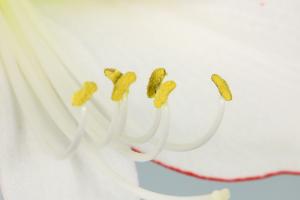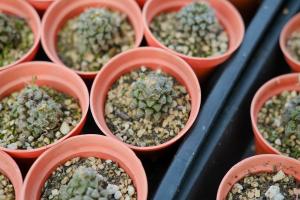Where are the Mitochondria Located in a Plant Cell?
Introduction
Mitochondria are membrane-bound organelles that are responsible for producing energy in eukaryotic cells. Plant cells are eukaryotic cells that also contain mitochondria. However, the location of the mitochondria in a plant cell is not always easy to determine. In this article, we will explore the location of the mitochondria in a plant cell.
Structure of Mitochondria
Before we explore the location of the mitochondria in a plant cell, it is important to understand the structure of mitochondria. Mitochondria are composed of an outer membrane, an inner membrane, a matrix, and cristae. The outer membrane is a porous membrane that encases the entire organelle. The inner membrane is folded into cristae, which increase the surface area for chemical reactions. The matrix is a gel-like substance that contains enzymes for cellular respiration.
Location of Mitochondria in a Plant Cell
Mitochondria are found in all plant cells, but their location can vary depending on the cell type and stage of development. In mature plant cells, mitochondria are found in the cytoplasm and are evenly distributed throughout the cell. However, during cell division or the early stages of development, mitochondria can be found near the nucleus where they are needed for energy production during cell division.
Function of Mitochondria in a Plant Cell
The main function of mitochondria in a plant cell is to produce energy through cellular respiration. During cellular respiration, glucose and oxygen are converted into carbon dioxide, water, and ATP. ATP is the energy currency of the cell and is used for all cellular processes. In addition to producing ATP, mitochondria are also involved in other metabolic processes such as the synthesis of steroids, heme, and iron-sulfur clusters.
Conclusion
Mitochondria are essential organelles in plant cells and are responsible for producing energy through cellular respiration. The location of mitochondria in a plant cell can vary depending on the cell type and stage of development. While mitochondria are found in the cytoplasm of mature plant cells, they can also be found near the nucleus during cell division or early stages of development. Understanding the location and function of mitochondria in a plant cell is important for understanding the processes that occur within a plant cell.

 how many times do yo...
how many times do yo... how many planted tre...
how many planted tre... how many pine trees ...
how many pine trees ... how many pecan trees...
how many pecan trees... how many plants comp...
how many plants comp... how many plants can ...
how many plants can ... how many plants and ...
how many plants and ... how many pepper plan...
how many pepper plan...































